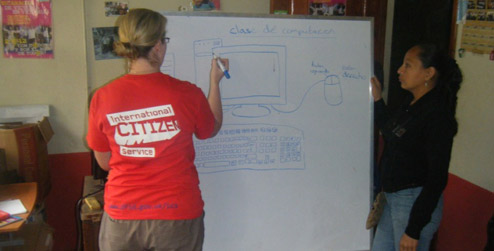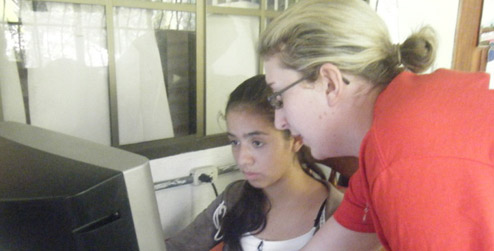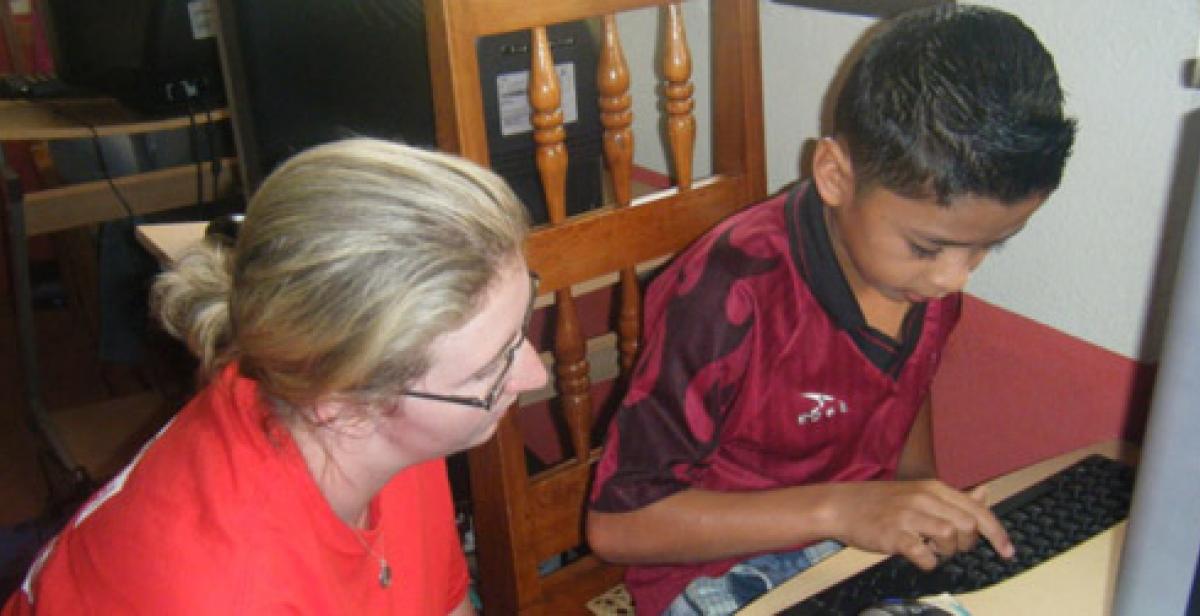Have you ever tried to teach basic IT skills to someone who has never used a computer before?
I don’t know about you but I find it incredibly difficult. IT and using technology is so engrained into our everyday lives in the UK that explaining simple things like how to turn on the computer, type, and use the mouse actually take a lot of effort and thought to explain.
Ok, so what about teaching IT skills to someone who has never used a computer but doing it in a different language? Sounds tough right?
Well that was the challenge I faced this week.
We are volunteering in a small community in Northern Nicaragua with a population of around 5000. The community is well organised and runs a number of social services including a day care centre, library and vocational classes. One example of which is giving children access to computer equipment and classes. It is these activities we have been kindly asked to be involved in planning, delivering and developing for the people of Dipilto.
We developed a lesson plan covering the basics of the mouse, keyboard and a few tasks for the children to practice typing. Then with a quick attempt to be the next Picasso (photo below), we were ready to roll.

We taught these basic skills to a group of ten children and two adults, some of which had experience of using a computer for gaming but other than that the group were complete beginners. It was really interesting to see the kids eager to learn and the adults getting to grips with typing and using Microsoft Word. Everyone seemed to enjoy the class and I was very impressed at how quickly they learned basic functions and used them effectively.
Basic IT skills are becoming an essential part of everyday life and something that everyone, regardless of ability and background, can learn. The only question is one of access – access to equipment and knowledge is all it takes for even the most remote places and poorest people to gain real future life skills and develop the country in the 21st century.

The kids in the class have another 6 weeks of teaching and at the end of it they will receive a certificate to show they now have basic IT skills and knowledge. I can’t wait to continue working with all the class and watching them learn and grow in confidence with a skill I’m sure will really help them in the future.
Progressio ICS volunteer Gemma Blakey writes about teaching IT skills.



